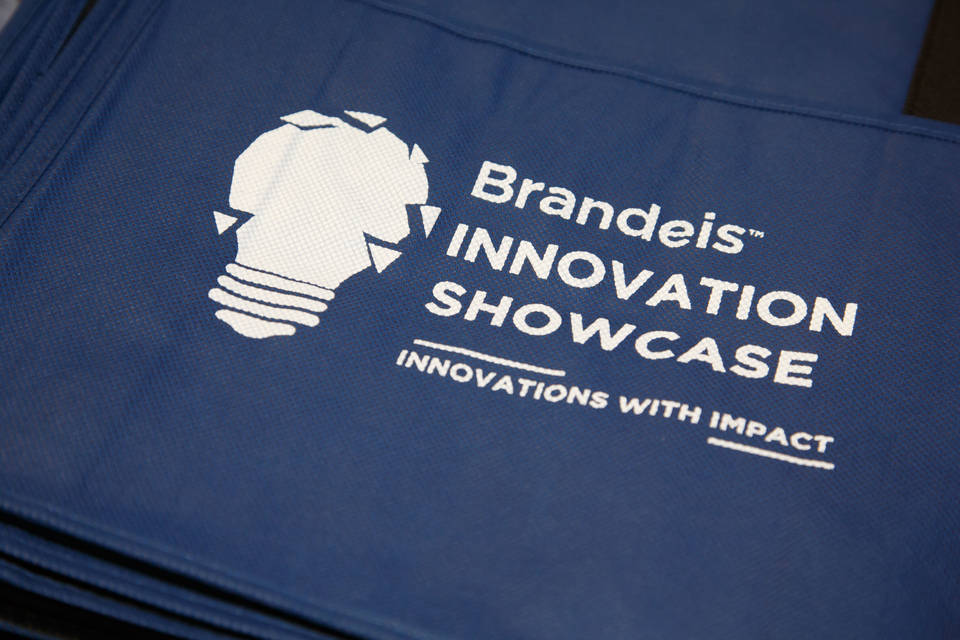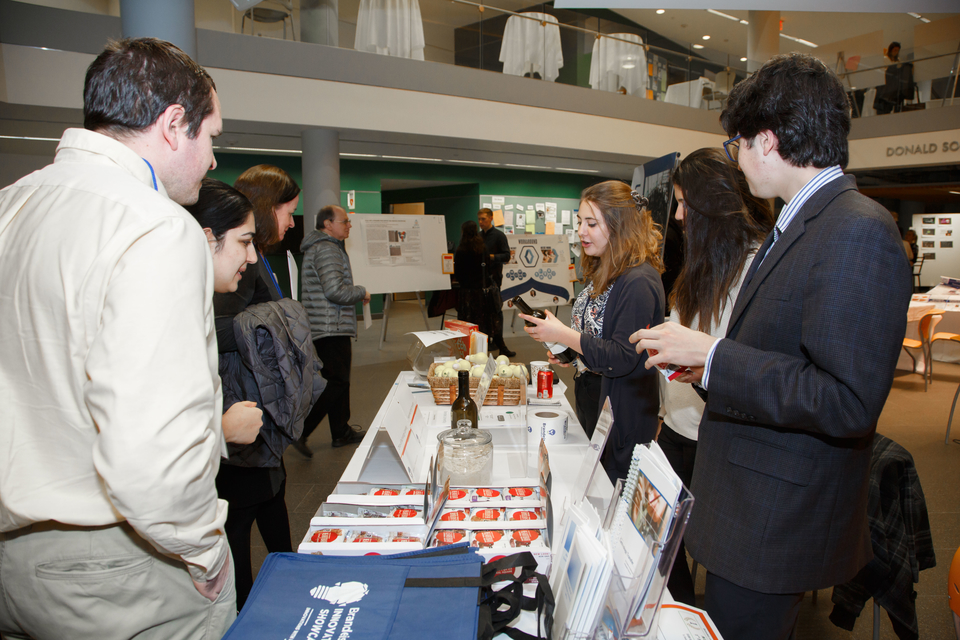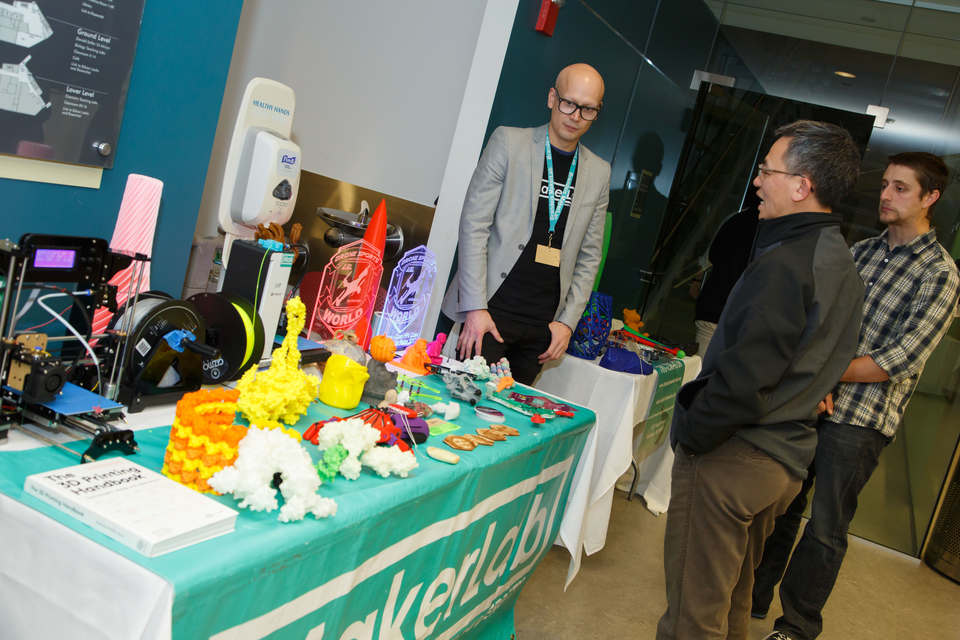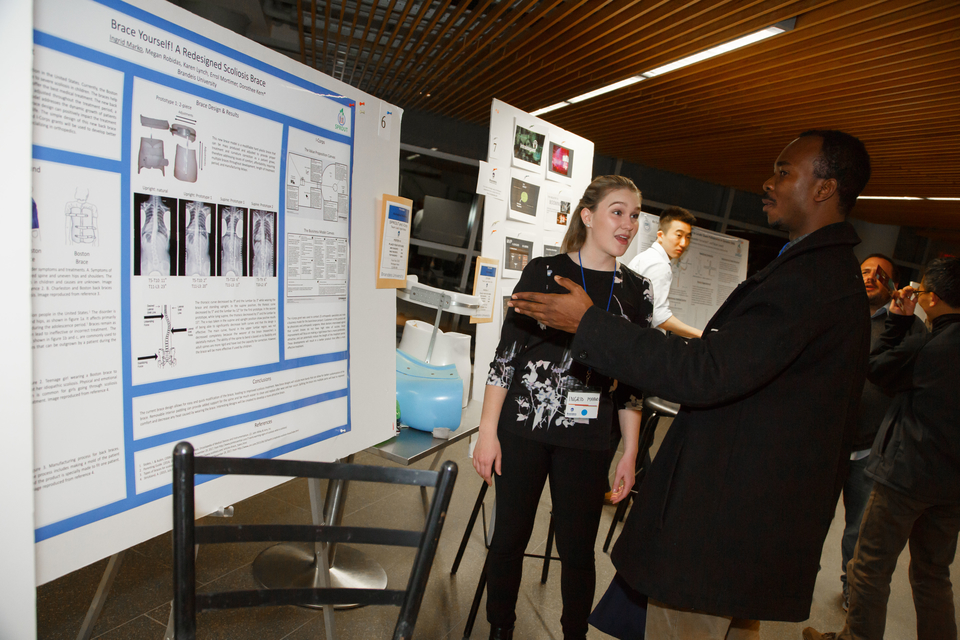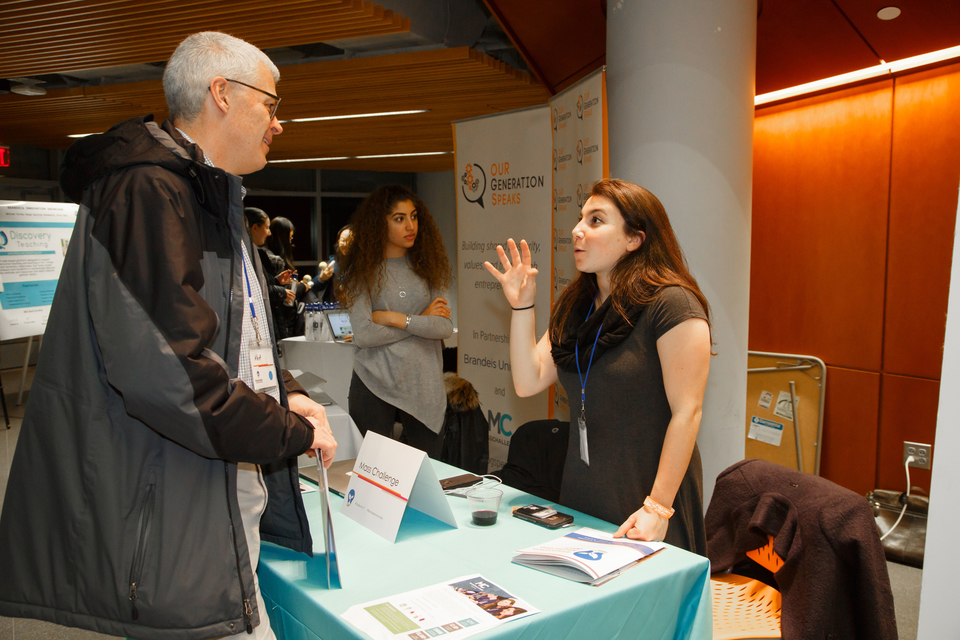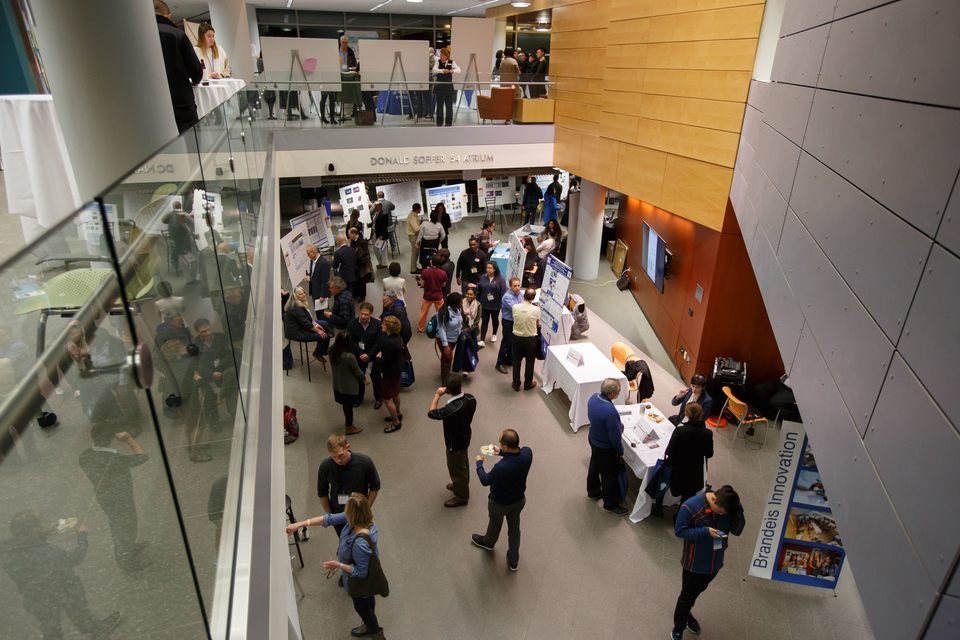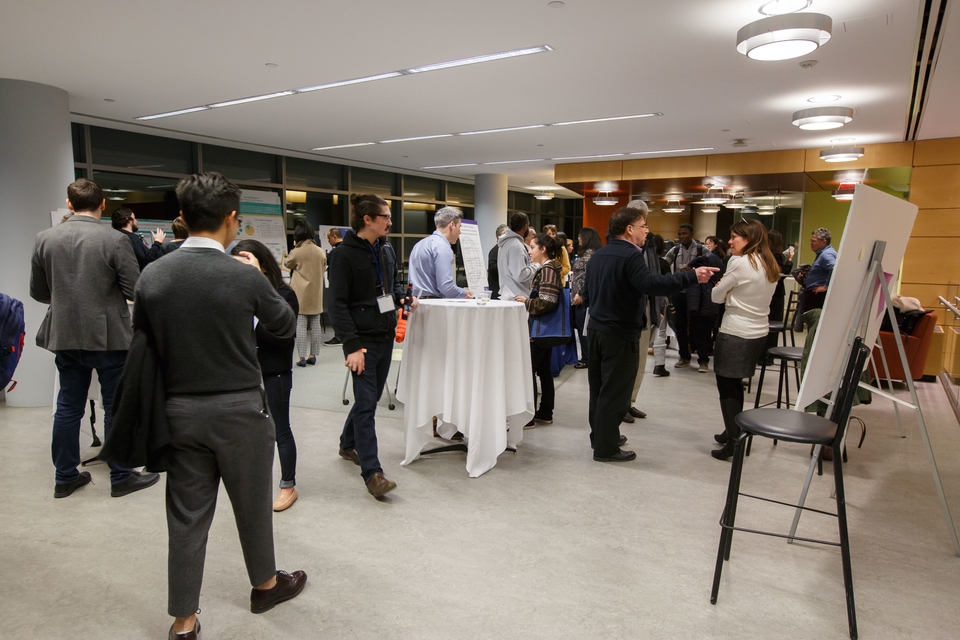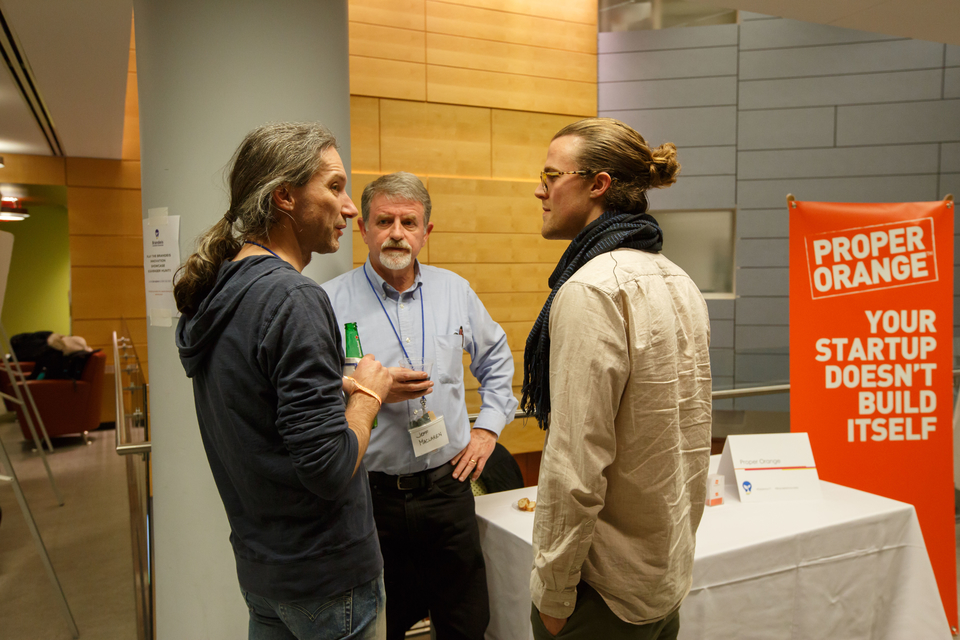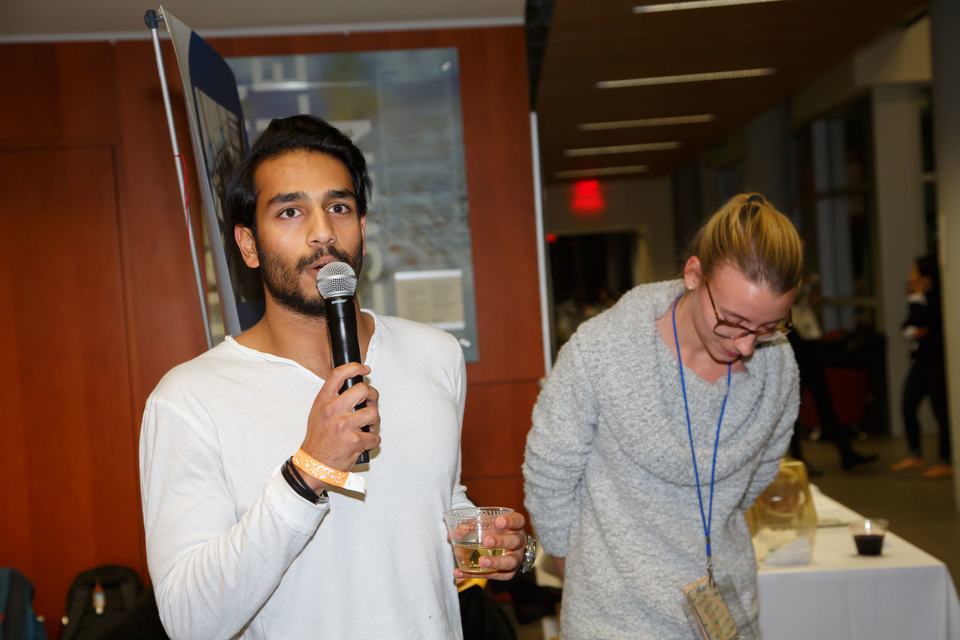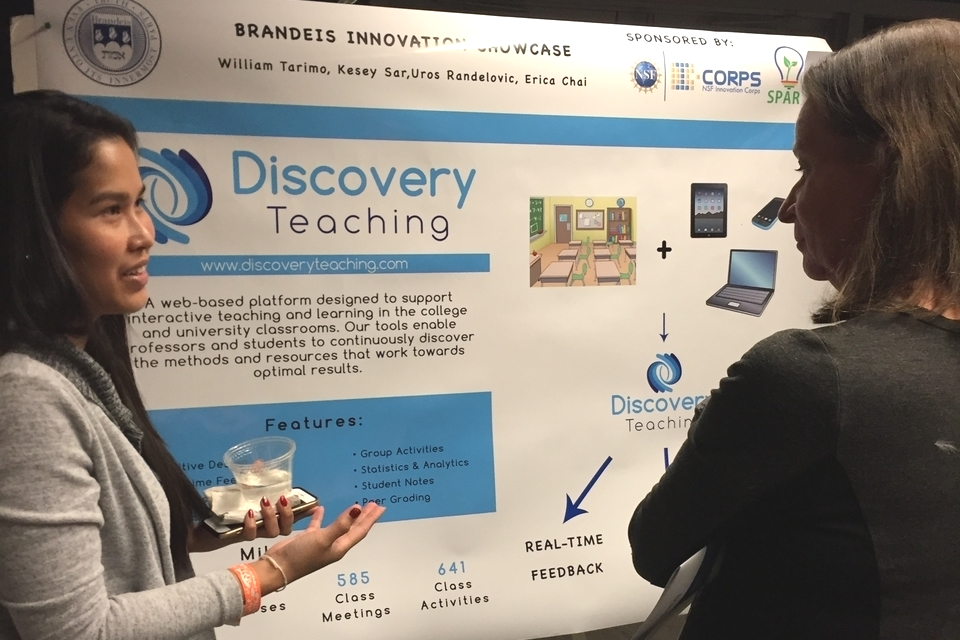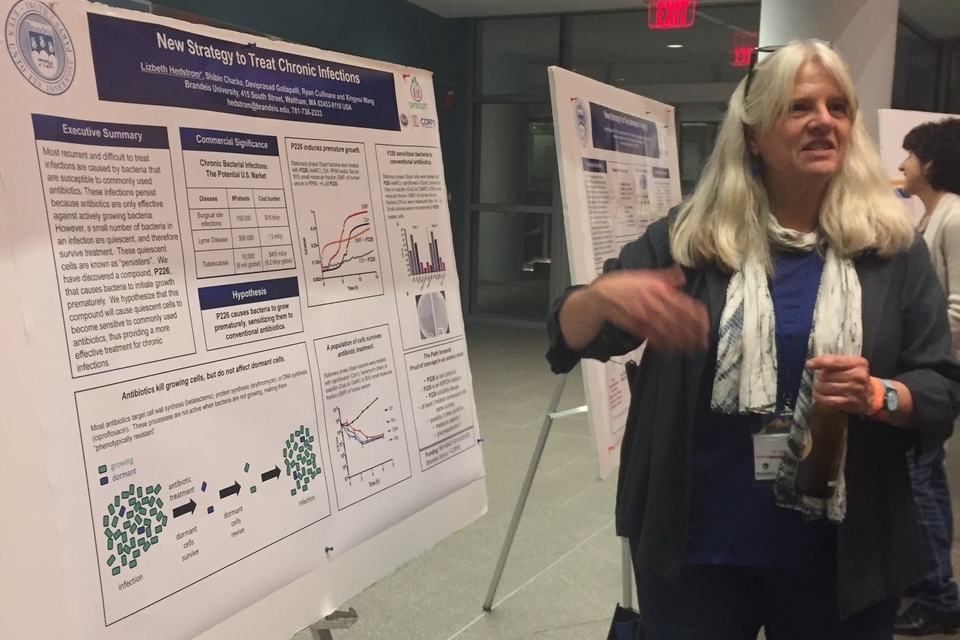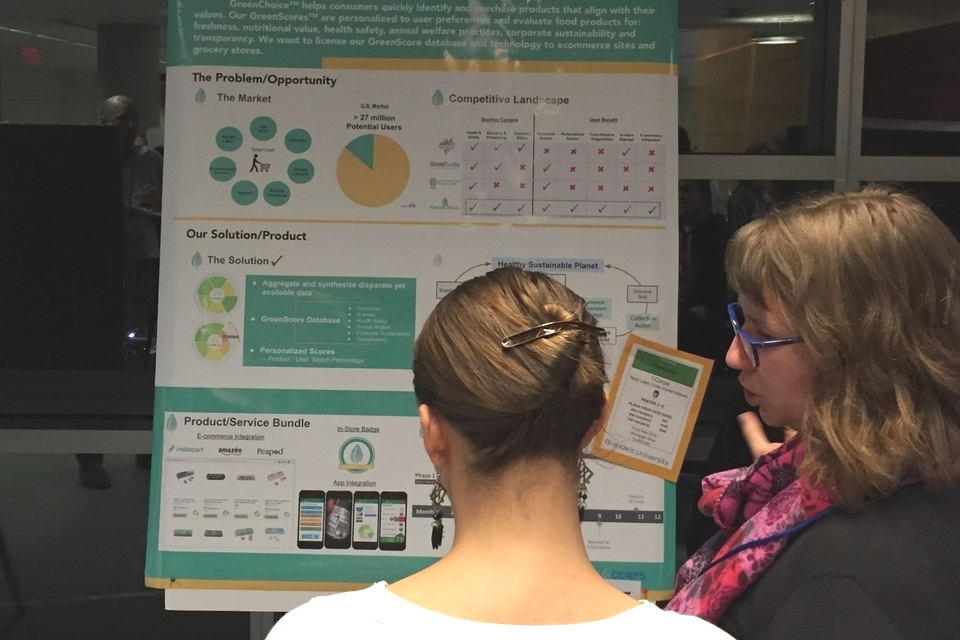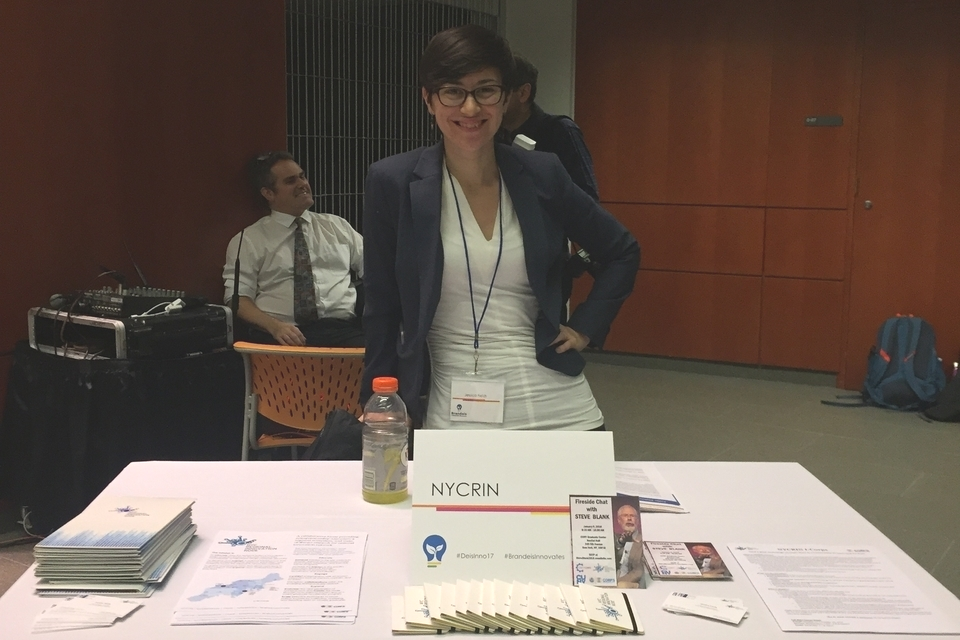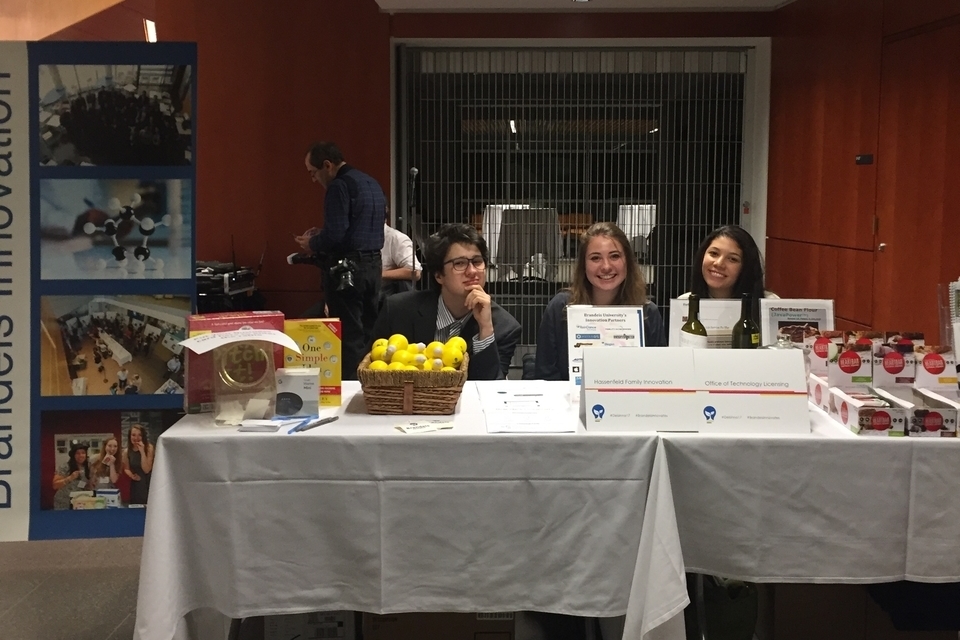Innovation Showcase Highlights
By Lindsey Turk, guest writer, event attendee
For many researchers, it's difficult to initiate the step between showing their product at the university level and getting it to the marketplace to be a viable, commercial product. Brandeis University, through its Office of Technology Licensing, is looking to make that step easier.
On November 30th, Brandeis Innovation hosted its 3rd Annual Innovation Showcase, an event in which eighteen different presenters exhibited their projects to peers, as well as possible mentors and investors. This year, over 150 individuals attended the showcase, which aims to celebrate the creative endeavors of entrepreneurial individuals from the university community.
The projects ranged from a redesigned scoliosis back brace to an app that evaluates how “green” grocery store items are. Each presenter was a part of either the I-Corps, Sprout or Spark grant programs, part of the Brandeis Innovation Virtual Incubator.
SPROUT aims to support those who conduct bench research (research done in the setting of a lab), offering grants between $1,000 and $20,000. Spark, on the other hand, offers opportunities for those with ideas outside the lab, such as in education, business, or computer science, and offers grants up to a few thousand dollars. To sum it up in the words of Rebecca Menapace, Associate Provost for Innovation and Executive Director, Office of Technology Licensing, these two programs reflect the wide range of pursuits offered at Brandeis, “from developing software and apps to improving protein chemistry and vaccine development.”
Presenters included students, faculty, and staff, each with varying backgrounds and interests. It was a unique opportunity to be able to see bioscientist Benjy Cooper (BS, '11) presenting his research on cartilage-protecting viscoelastic gel next to Wafaa Arbash (MS, '17) and her team presenting their platform for helping refugees find opportunity. An atmosphere like that showed camaraderie, as well as a clear common goal of making the world a better place.
One such researcher, Lizbeth Hedstrom, actually had two posters on display. She is a professor of biology and chemistry at Brandeis, and has been teaching since the '90s. She was excited to be able to present her work to others and talk about her discoveries. She was also pleased to speak to those who gave her new ideas and could be potential collaborators in the future. Throughout the night, attendees were encouraged to “invest” Monopoly money in three of the projects they liked best, and one of Dr. Hedstrom’s posters won first place: "Therapy for the Diseases of Aging."
Having had scoliosis herself as a child, Ingrid Marko, another presenter at the event, has been working on a redesigned scoliosis brace for the past few years. She was motivated to speak to others about the disorder, since, in her words, it’s not one that is talked about as much. Since her project is something that people can actually see and touch, it was easier for visitors to grasp what she was showing. Because of this, she said she received a few suggestions on how to improve her brace and even met a few potential investors. At the end of the night, Marko won second place for her project.
The third-place prize went to Joel Meyerson and Jungwon Park for their cryo-cell project. Their goal was to change the way in which proteins are frozen for structure determination, a process that has not been updated in thirty years. Their new, freezable fluid cell would make reshape research on cryo-electron microscopy by making it more affordable and accessible.
This year, the Annual Innovation Showcase had the honor of exhibiting Corazonas Heartbar, an oatmeal square designed to lower cholesterol when taken with food. According to its website, “Heartbars' cholesterol-lowering efficacy in humans was established by a Brandeis University clinical trial. The results of this study were published in the Journal of Nutrition in March 2004.” The oatmeal bar is a source of pride within the community, and has had noted success commercially while also helping improve nutrition for consumers.
Neither the event nor the opportunities for researchers would be possible without the aid of a number of sponsors, most notably the Hassenfeld Family Initiatives. Additionally, a special thanks goes to Posternak, Blankstein, and Lund, Fish and Richardson, TCF Law Group, Foley Hoag LLP, LeClairRyan, and Impact Hub Boston. The Office of Technology Licensing organized the event in conjunction with the Hassenfeld Family Innovation Center, a partnership between the Office of Technology Licensing and Brandeis International Business School.
Even though the presenters at this year’s event set the bar high, Brandeis University is excited to see what next year’s presenters have to offer, and are looking forward to potentially giving you the opportunity to see your idea for positive change become a reality. Applications for Sprout open in the spring, and have just closed for Spark.
